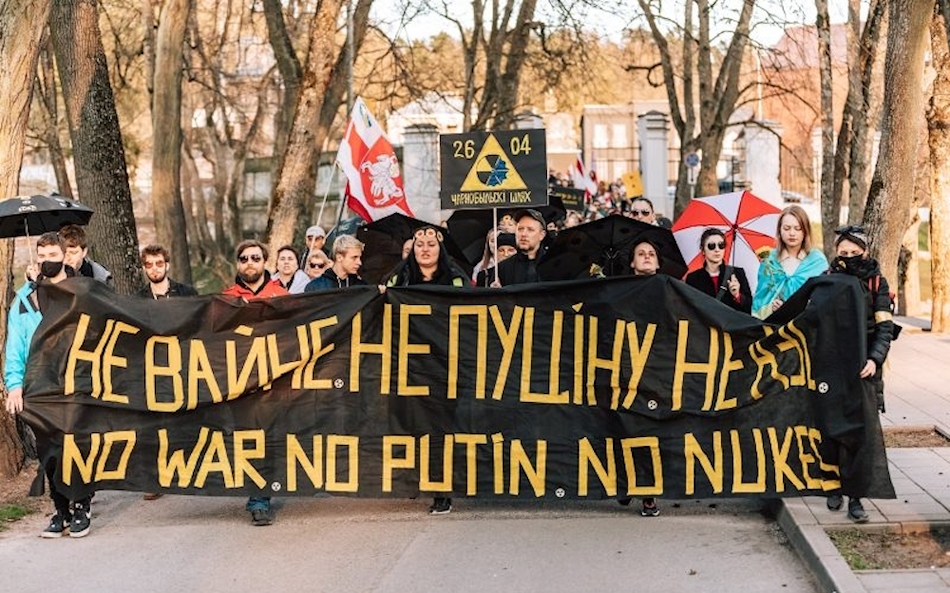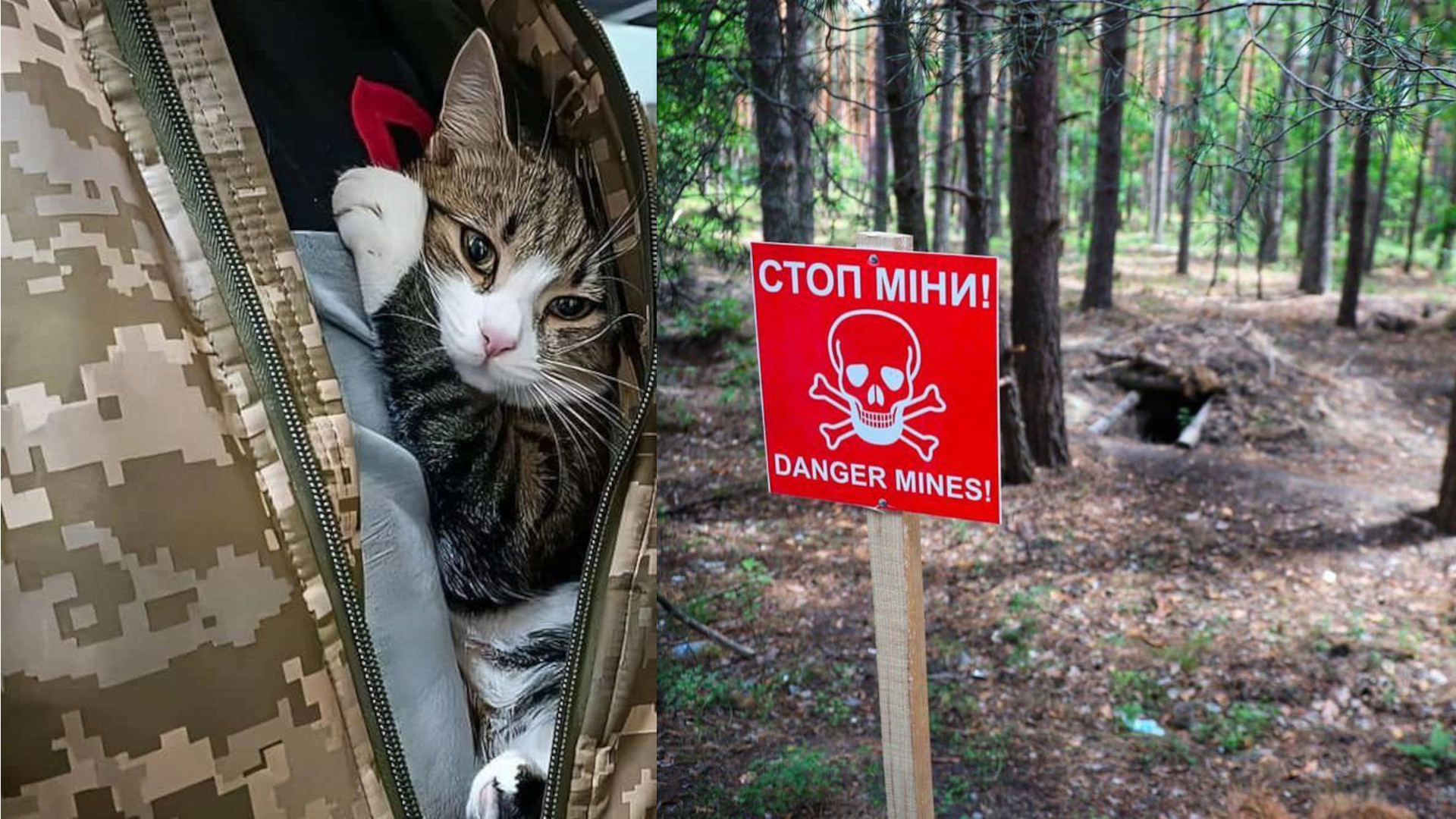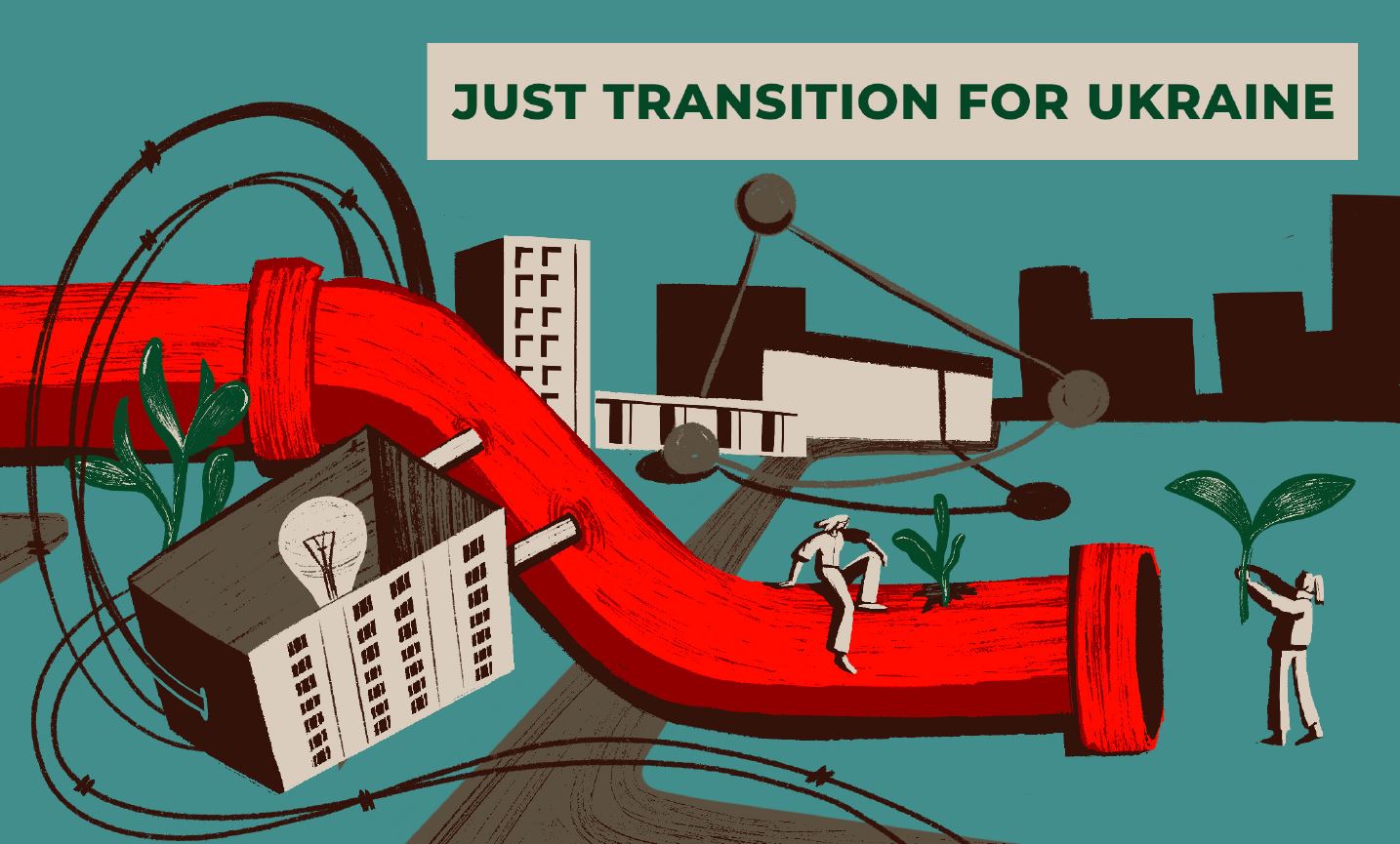Alexej Ovchinnikov
This article begins a series discussing how the full-scale invasion of Ukraine has impacted environmental activism in Belarus, Georgia, and Ukraine and explores how activists can find ways for environmental organizations and initiatives to continue their work during these difficult times.
Major political events reveal and highlight social processes that have actually been brewing in society for a long time. This is exactly what happened during Russia’s full-scale invasion of Ukraine, following the start of hostilities in 2014. Pressure on non-governmental organizations (including environmental ones) in post-Soviet countries has been going on for decades with varying degrees of intensity. However, it was during the full-scale invasion that conversations in international circles intensified about the desire of post-Soviet governments to establish authoritarian regimes and subjugate activism.
Although the war is taking place on Ukrainian territory, it affects other countries as well. The Russian government has ambitions of restoring a Soviet-style empire extending across vast territories from Eastern Europe to Central Asia. Using instruments of pressure from the political to economic and cultural, Russia seeks to form satellite regimes that are friendly and often maintain an authoritarian stance and stifle civil society, attacking both grassroots initiatives and non-governmental organizations (NGOs).
Over the past five years, environmental and climate activists in Ukraine, Belarus, Georgia, Russia and other countries have faced unprecedented levels of pressure. War, repression, rollbacks in environmental and climate policies, the replacement of NGOs with GONGOs (pro-government and ideologically “correct” organizations) and a shift toward authoritarian forms of government have all led to many environmental initiatives either ceasing their work or, at the very least, being forced to reshape it. Many lost the ability to address environmental issues at the local level. At the same time, climate change marches on, and its manifestations have only intensified. Eastern European countries are increasingly suffering from heat waves, water shortages or, conversely, excessive and abnormal precipitation.
Belarus: Elimination of environmental organizations, forced migration and lost connections
In early 2021, it became clear to Belarusian society that the protests that began after the rigging of the 2020 presidential election would not change the socio-political situation in the country for the better. Unfortunately, they only led to increased repression. The Lukashenko regime decided to label NGOs receiving international funding and supporting the protests as “enemies of the fatherland.” Environmental organizations were also included in a “blacklist” for elimination and were largely liquidated in the summer of 2021. It is difficult to know the precise number of environmental NGOs that have been shut down, but over 100 environmental conservation organizations disappeared during the “cold summer of 2021”.
Presentation by Marina Dubina, Ecodom, at a UWEC Work Group webinar on the situation with environmental organizations and activists in Belarus and Russia during the full-scale invasion of Ukraine.
Among those closed were two large organizations: Ecodom (liquidated on July 31, 2021) and Akhova Ptushak Batskaushchyny (APB, “Bird Protection of the Fatherland”) (liquidated on March 18, 2022). APB was subsequently registered as an “extremist” organization that same month, followed by Ekodom and its social media accounts in October 2022. This means that any cooperation with these organizations, such as reposting from their social media accounts, may lead to criminal liability.
At the time, Ecodom was the largest Belarusian organization representing the country on the international stage. In particular, the organization played an important role in Belarus’ participation in the “Aarhus Convention on Access to Information, Public Participation in Decision-making and Access to Justice in Environmental Matters” and monitored its implementation. The Convention Committee called for the restoration of Ecodom’s status in recognition of its long-time representation of the country. However, Lukashenko’s government chose a different path and “simply” withdrew from the convention. Russia has also begun to actively apply this strategy of demarche during a full-scale war, including by denouncing the Ramsar Convention in August 2025.
As for APB, this organization was arguably the main driving force behind environmental protection activities in the country, including achieving the designation of protected areas. One key focus area was saving the vast Polesia wetlands and forest, an important region not only for Belarus but for the whole of Eastern Europe. After the organization was shut down, work to protect the Belarusian part of Polesia via the Save Polesia initiative largely ended. Five years on the region has suffered even more, not only from climate change, which directly affects biodiversity, but also from militarization. Environmental projects on both Ukrainian and Belarusian territory are now much more difficult.
Polesia is often called the “Amazon of Europe”. It is a unique area of landscapes with rich biodiversity along the Pripyat River in Poland, Belarus, and Ukraine. Those nations have awarded protected status to 36,000 sq km of these lowlands. At the same time, 12,000 sq km in Belarus and 19,000 sq km in Ukraine are also part of the European Emerald Network. Rare species such as the aquatic warbler (Acrocephalus paludicola), spotted eagle (Clanga clanga), and the bladderwort (Aldrovanda vesiculosa) are found here. Polesia is also known for its varied biotopes, such as floodplain meadows, oak forests, and wetlands. It is also a key waypoint for migrating birds in the spring and autumn.
In addition to APB and Ecodom, many other Belarusian organizations that were actively involved in environmental protection, climate policy implementation and the achievement of Sustainable Development Goals were also liquidated. The grassroots NGO Bagna was involved in researching and protecting wetlands, and Interaktsiya worked hard to achieve sustainable development goals in the country.
These repressive tactics not only sought to shut down organizations and label them as extremist, but also to stop their work. Dozens of environmental activists were also arrested and sent to prison. The most high-profile case among environmental groups was the two-and-a-half-year imprisonment of Viktor Fenchuk, former director of APB and a well-known Belarusian expert in the field of nature conservation. Fenchuk served his full sentence and was forced to leave the country after his release in 2023. The projects he was involved in were put on hold, including one that promoted understanding the role of wolves in ecosystems, a species still hunted in Belarus.
Many environmental and climate activists, experts, and organizations have left the country. Those who remain have distanced themselves from active involvement and refrained from opposing or criticizing the authorities (at least publicly). Some of the environmental experts, activists and journalists who left are attempting to continue their activities in exile, but their work is complicated by the fact that they have virtually no influence on environmental protection in Belarus. For the past four years, environmental and climate activists have been looking for ways to support those who have remained in the country, as well as developing strategies for the future, when the political situation in Belarus changes. For example, the Green Belarus project is trying to bring together organizations and activists, while the Belarusian media outlet Zeleny portal continues to disseminate information related to the country’s environmental agenda.
UWEC Work Group spoke with Iryna Ponedelnik, coordinator of the Youth Climate Council and a Belarusian environmental and climate activist in exile who represents Belarus in the Climate Action Network Eastern Europe, Caucasus, Central Asia (CAN EECCA). Ponedelnik says that the most important issue for Belarus today is human rights violations. There are still more than 1,000 political prisoners in the country, and people who have been subjected to repression in one way or another number in the tens of thousands. It would seem that in such a situation, issues of ecology and climate change would be less prominent, but people in Belarus are still concerned about air pollution, the lack of mechanisms for adapting to abnormal weather phenomena, illegal logging, and, in general, they desire an environmentally friendly lifestyle. It is impossible for environmental and climate activists to work freely in the country itself, but work continues abroad. In particular, a Youth Climate Council has been created, and Ponedelnik organizes educational programs for experts to continue to share their experiences.
The work is complicated not only by domestic political issues in Belarus, but also by the situation in the larger region. Russia’s invasion of Ukraine, a move condemned by Belarusian civil society, has had a significant impact on the work of organizations and activists inside Belarus. At the same time, it has also shifted the focus away from Belarus in international discussions and has resulted in reduced financial support.
“There are many conflicts in our region, civil society space is shrinking and with the recent loss of American funding, everyone is trying to survive as best they can. There are no ‘extra places’ for the Belarusian climate and environmental movement,” notes Ponedelnik.
No support is forthcoming from international organizations either, and to some experts it seems that funders have excluded Belarus’ environmental and climate agenda from the list of important issues.
“For example, my young colleagues and I tried to apply to organize a Local Conference of Youth, but we were rejected due to ‘insufficient scale’. But what scale are we talking about? This approach applies to all types of support—we are not considered part of the Global South, and when it comes to Eastern Europe, they say it is better to support Ukraine or Moldova,” she continued.
Other challenges exist as well. Constant economic instability, the need to work with small groups while maintaining a high level of security (10-15 people attend Green Network webinars) and the difficulty influencing the situation at home—all of this has a negative impact on the work of the organization and its activists and leads to burnout.
As Ponedelnik says: “I find the word ‘efficiency’ very upsetting. It is impossible to work effectively in Belarus at the moment. When I hear colleagues say things like, ‘In our day, people started eco-businesses,’ I want to close my eyes and run away. I remember organizing large and influential festivals, but now that is simply impossible.”
“When your work becomes invisible, you lose energy and strength, and the fire simply stops burning,” Ponedelnik concludes.
Unfortunately, today the Belarusian environmental movement has effectively become one of the endangered species it was created to protect. Without international support and recognition, it may simply disappear in the near future.
This series was produced as part of the Thematic Networks of PULSE, a European initiative that supports transnational journalistic collaborations. Read other articles in this series here and here.
Main image: Chernobyl Way 2022 Source: EcoHome







